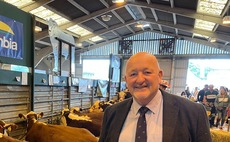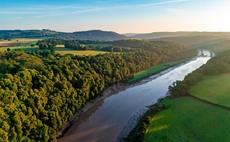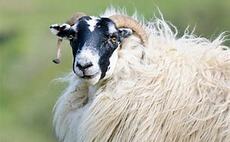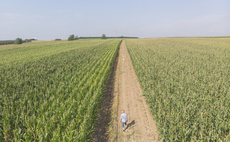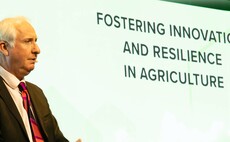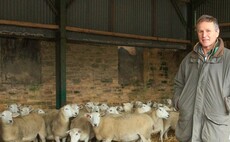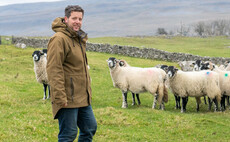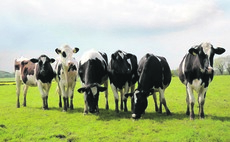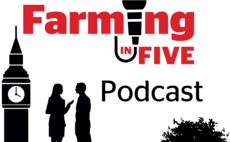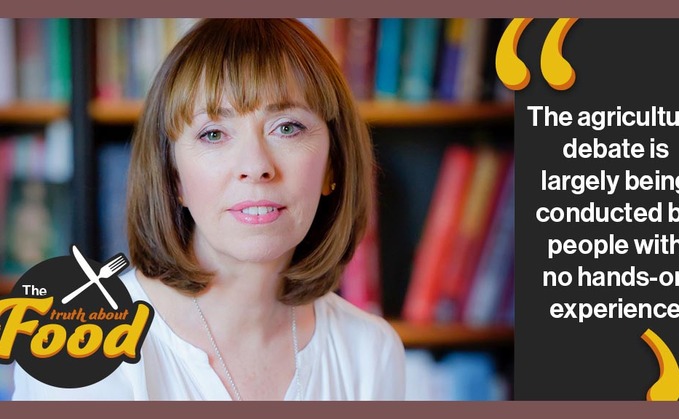
In a new series, The Truth About Food, Emily Ashworth looks at the changing food trends and diets of today, and if they are environmentally sustainable and helping to keep the nation healthy. Here, award-winning food writer Joanna Blythman reveals her views on veganism, sustainable farming and what she thinks we should be really eating.
To say Joanna Blythman knows a thing or two about food would be a complete understatement.
After decades writing about it, eating it and cooking it, she has an array of books and awards under her belt and is adamant in her stance about processed food - she says her food motto in three words would be ‘avoid processed food' and, if she was to sum it up in one, it would be ‘cook'.
But there is something that is worrying her lately, and that is the rise in anti-farming activist's intent on sabotaging Joanna's food beliefs.
Proud of her Glaswegian roots, her passion for all things edible came from her grandmother who instilled a deep-set attitude to food in her.
She says: "My grandmother lived with us.
"She was a deeply suspicious of processed food and always cooked from scratch - she would be horrified at the thought of using margarine.
"She was a working-class seamstress so didn't come from a privileged background, but she always had this thing that you always cook for family and use real food. It was almost a form of self-respect.
"One of the most influential things for me was soup, and they all started with bones and it would boil away in the kitchen. We never got bored with it."
But Joanna believes there is an underlying issue with the way the UK views food, and that the way you eat immediately places you in a certain branch of society. This attitude could be highly detrimental to the nation's health and the reality is, the answer is not about creating a cheaper, more intensive food system.
"Good food is posh in Britain," says Joanna.
"You don't get this attitude in France or Spain.
"If you show any interest in food, you must be posh and that's quite the opposite of my grandma's attitude.
"We need to unpick this term ‘food poverty' and the idea that to afford good food you need to not be poor.
"It's a need to address poverty [in general].
"The whole argument about food poverty serves the industrial food process because it debases the food we eat by saying well, we're making it affordable - cheap chicken, farmed salmon, this is great because all families can have it.
"My roots are firmly working-class Glaswegian and I resent that implication. It's a slur on working-class people to imply that they only want junk food. There's never aspiration to say good food is a democratic entitlement, but that's an attitude of other European countries. It's a weird reflection of the British class system that's bedded down in the food system.
"It's a really bad excuse - people don't need cheaper food, people need a better living wage, affordable housing and a better benefits system."
Figures
Joanna has worked on research for multiple national newspapers and over the years, the focus has switched to the vegan movement - is it the best way to eat? To save the planet, should the whole world turn to a plant-based diet?
But she finds it ‘deeply concerning' and to imply that such a large-scale U-turn in our diets will eradicate numerous health problems and reverse climate change is, on the whole, wrong.
And the figures do not change that much, with just 1 per cent of the population vegan, and about 5 per cent vegetarian. Figures from the USA are pretty much the same too.
Joanna says: "They make a disproportionate noise to what they really represent, and the fact is that the media narrative has really let us down here and so have some academic institutions.
"They don't interrogate any of these assertations.
"There was the story about how farming causes more pollution than transport put together and it's completely erroneous and wrong, but this is being trotted out by everyone from the BBC to whoever without checking it.
"With pressure to keep up advertising and website hits, they need shocking headlines. Something like how regenerative agriculture is and how cows can replenish the soil is just not sexy enough for them.
"There's also the fear aspect.
"Although I accept climate change and know it needs to be addressed, this kind of apocalyptical ‘if we don't do this the planet will crash and burn tomorrow' creates a climate of emotional blackmail and puts you as a climate change denier.
"We need to be asking how we can address that and if we all became vegan tomorrow the idea that it will save the planet is really pernicious."
Media
There has been a wave of backlash against recent TV programmes and the disparate claims about farming - many of the claims being made on documentaries such as Meat: A threat to the planet were not solely based on UK farming, but agriculture globally.
More recently, the farming community backlashed against Channel 4's Apocalypse Cow, branding it unfair and unrepresentative of the British agriculture.
"It concerns me how it's always done on a universal basis, like that ridiculous BBC documentary that had no bearing to UK farming," says Joanna.
"But people would watch it and think if you're in the UK eating meat, you're making the situation worse.
"We shouldn't be eating the same diet around the world, that's ridiculous.
"We should be encouraging a diet that reflects the productive capacity of the land we live in.
"The debate around agriculture is largely being conducted by people with no hands-on experience with farming, food production or cooking.
"They don't understand what it takes to grow food, the importance of food producers and the crisis for food producers - they're clinging on and your average livestock or dairy farmer isn't not making much money.
"There are implications for this country's future food security when you really disrespect and demoralise the people who are capable of producing food that our land is really good at producing.
"If we lose them, who will replace them? It will be replaced by ultra-processed food, highly profitable, full of powders mixed with additives, very packaged and very bad for the population."
But the health claims from those advocating a vegan diet are understandably attractive concepts.
Plus, in the past, radical headlines such as those that state red meat causes cancer have done nothing to promote the real benefits of consuming animal products.
But Joanna is adamant that a plant-based diet is not a sustainable option, and has serious implications, especially for young children.
"The fact is nobody will live healthily off a vegan diet without a huge number of supplements, and processed foods that are supplemented with vitamins - but they are the least healthy foods you can eat," says Joanna.
"There are a range of micro nutrients you would quickly become deficient in by going vegan and are we really saying we are going to tell the population to take supplements? Do we trust the whole population to go out and buy packets of B12?
"It's really criminal, actually, to encourage people with young children to deprive them of animal foods. I think that will create health problems in the future that people haven't seen since pre-war times.
"It's hugely extreme."
Policies
This dietary crisis has many branches of blame, but it also falls to those running the country to help shape the UK's approach to food.
Since the 1960s Public Health Guidelines have ‘encouraged people to move away from the nutrient dense foods that used to sustain us' and are now ‘part of the problem'.
"The effect of this is shocking," says Joanna.
"Again, I've researched this and the country with the best food guidelines is Brazil. In 2016 they stated to avoid processed food, cook with local and seasonal foods and follow traditional eating pattern.
"We need to learn from that sort of wisdom."
It also begs the question, though - to gain such traction from major broadcasting corporations and retail chains, where is the funding coming from? According to Global News Wire, the vegan food market is estimated to reach a worth of $24.3 billion by 2026.
"Basically, you can make a lot of money out of processed food rather than raw ingredients," says Joanna.
"I'm convinced the fake meat products won't do well long term, but the damage it's doing to real meat products is really bad. I feel I've got no choice and that I've got to keep saying it - follow the money."
But there is global change happening too, and research from countries such as India indicate that if not properly revised, such views are having undesired effects on certain cultures.
Joanna says: "A point that needs to be made is this: It's all very well for the George Monbiot's of the world to say the planet needs to turn plant based, but for example, India is getting obese and sick on a plant-based diet.
"To impose that on people who already don't have a diet rich enough in nutrients is this kind of ‘white saviour complex'.
"Those people need more protein and good fats - the kind you get from livestock. Not duff nutritionally useless carbohydrates. It's appalling arrogance and insensitivity."
Joanna recently spoke at the Oxford Real Farming Conference to highlight the damage that a shift to a plant-based, vegan diet could do to the nation's health. But farming needs to continue to participate in the conversation practically and sensibly.
"I think Minette Batters has more ideas than her forebears' and is someone who has the capacity to enter in to social media debate and see a consumer point of view rather than act as a blind defender," she says.
"Everyone in my family eats what's local and sensible but yes, we'll buy lemons or pomegranates and things that can't be grown in this country - but not at the expense of what can be grown in this country.
"It's not some sort of middle-class affectation, it's how people around the world have fed themselves for a millennium."











